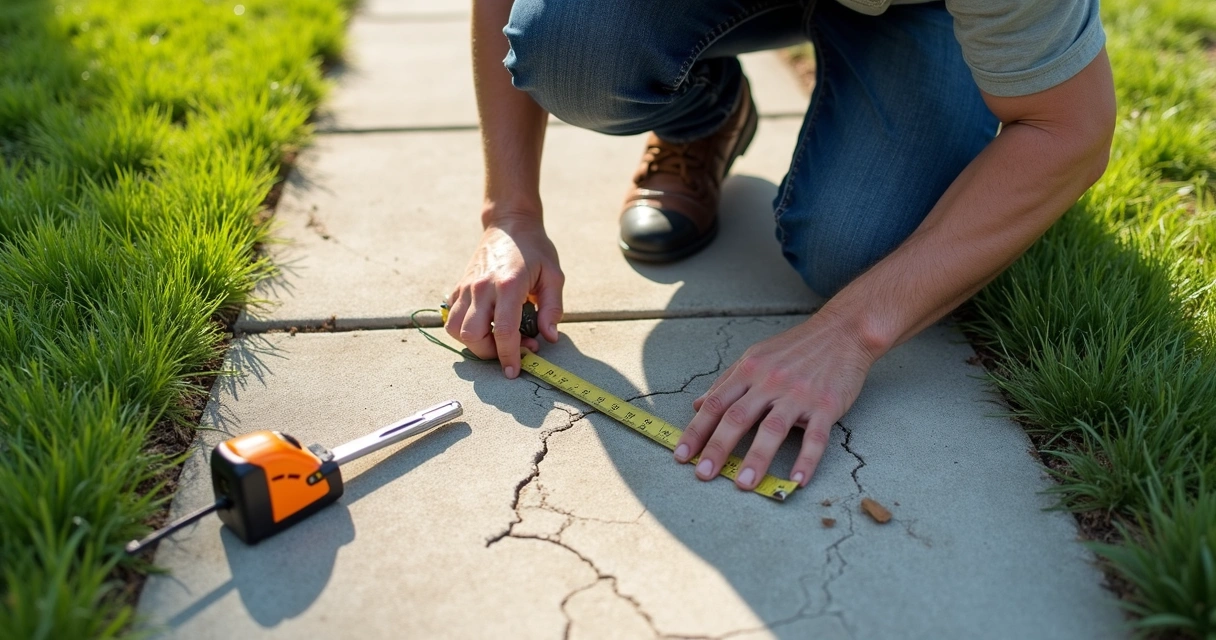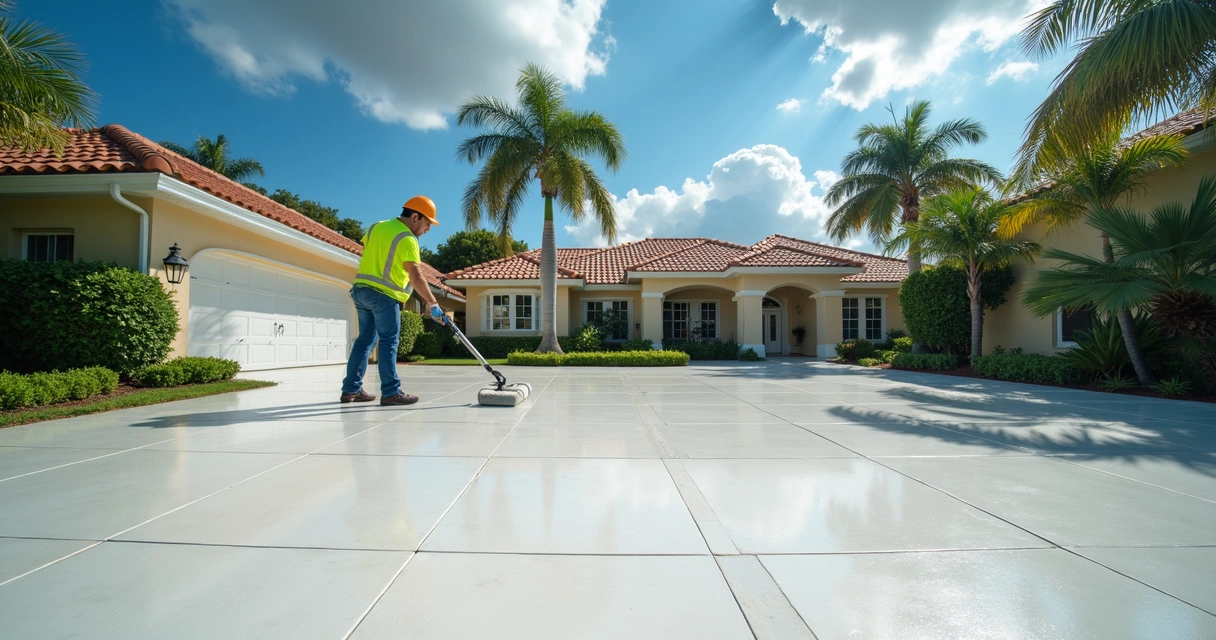If you’ve ever tripped on a cracked driveway or watched rainwater settle on a patio, you know how concrete problems can sneak up and spoil your space. Fixing these issues isn’t just about making things look new. Concrete repair, especially in places like Central Florida, can mean the difference between a safe, lasting surface and one that keeps causing headaches, year after year.
Not every crack is cosmetic—a small gap today can be a big repair tomorrow.
Finding a trusted, licensed contractor for restoration or repair is about more than a quick patch. It’s peace of mind, knowing the work will last, the liability is covered, and warranty protections are in place. Let’s talk about the practical steps—real questions to ask, clear signs to look for, and how to tell the difference between a surface that needs a lift and one calling for a full replacement.
Where to start before hiring a local concrete professional
You’ve searched “concrete repair near me” or maybe even walked your property, eyeing those little problems hoping they won’t get worse. Before picking up the phone, slow down and consider a few basics:
- Licensing and insurance: Only hire contractors who can show you a valid state or local license. Ask for their insurance details too—liability insurance protects you if something goes wrong on-site.
- Certifications: Concrete is technical. Contractors who hold certifications in concrete repair have extra training to use the best methods and mixtures for your climate and soil.
- Warranty options: Always ask for a written warranty. It’s your safety net, showing the company will stand behind their work.
- On-site assessment: Insist on a free, no-obligation walkthrough. A real professional will want to see the actual site, not just photos, before quoting a price.
At GCM Best Services, for example, a local licensed and insured team will come out, inspect the property, and talk you through every option—giving honest advice with no obligations upfront. This approach helps you trust the process, not just the sales pitch.
Repair or full replacement? It’s not always black and white
This part sometimes confuses homeowners. Is it just a matter of filling cracks, or is the damage deep enough that the concrete needs to be removed and replaced?
- Repairs: Suitable for surface cracks, minor pits, joint damage, or light settling. Repairs might include patching, epoxy injection, grinding, or re-leveling with overlays. According to research in the Journal of Performance of Constructed Facilities, selecting the right repair method is critical because nearly 75% of fixes can fail within 10 years without proper technique and materials.
- Full replacement: Necessary when the slab is crumbling, has large voids or sinkholes, or there’s deeper structural or drainage failure. A reputable contractor will help you decide based on a detailed site evaluation.
Spend a little time asking questions—save a lot of time and money down the road.
What impacts repair cost?
If you’ve ever gotten a repair quote and wondered “why so much?”—you’re not alone. Several factors drive the price of concrete repair:
- Type and depth of damage: Hairline cracks are less expensive than wide, deep ones or large sunken spots.
- Location and site conditions: Driveways are easier to access than pool decks tucked behind a house. Poor drainage, nearby tree roots, or tough soil can push costs up.
- Concrete mix specifications: Local codes may require high-PSI mixes or added reinforcement like rebar or mesh. Central Florida, for instance, often needs 3,000–4,000 PSI and a thick, compacted sub-base for stability.
- Finish and appearance: Standard broom or trowel finishes cost less than stamped or exposed aggregate patterns.
- Permit, HOA, and inspection fees: Some repairs, especially in neighborhoods with homeowners’ associations, trigger extra steps and costs. Professional contractors like GCM Best Services will handle permits, HOA paperwork, and inspections for you, making the process less of a hassle.
Common problems with driveways, patios, and slabs
 Concrete failures rarely appear overnight. It’s usually a slow process caused by:
Concrete failures rarely appear overnight. It’s usually a slow process caused by:
- Cracking: Weather, shrinkage, or movement in the base soil lead to hairline or larger splits. Most can be repaired, but some indicate deeper issues.
- Settling or sinking: Water washing away soil under the slab can cause sections to drop or tilt. In Florida, sandy soil and heavy rains make this common—requiring careful sub-base repair or replacement.
- Poor drainage: Standing water on driveways or patios leads to cracks, surface damage, and even mold. Contractors should look for these problems during assessments and recommend solutions such as re-grading, drainage lines, or slab re-leveling.
- Finish wear: Over time, the surface finish can erode, especially under cars or foot traffic. New coatings or surface treatments can restore function and appearance.
Good concrete work is as much about the base and drainage as it is about the slab itself.
Studies from the National Academies and the Federal Highway Administration highlight the need for careful prep, correct material selection, and proven methods. Tailoring repair strategies to local conditions, as suggested in peer-reviewed research, helps ensure repairs actually last in climates like Florida.
Permits, inspections, and project management
Even small repairs can trigger surprise requirements. Professional contractors should plan for:
- City permits and code compliance
- HOA notices or design approvals (if they apply)
- Scheduled city inspections before and after work
Leaving these details to the homeowner can slow projects and lead to fails at inspection time. A good contractor manages these steps for you. That’s why GCM Best Services takes a hands-on approach, guiding every repair from permits through to the final walkthrough and warranty handover.
Professional maintenance: keeping concrete in shape
 Want your repairs to go the distance? Maintenance is where most people fall short, but small habits go a long way:
Want your repairs to go the distance? Maintenance is where most people fall short, but small habits go a long way:
- Seal concrete surfaces: Regularly apply high-quality sealer, especially on driveways and patios, to keep out water and stains.
- Keep drains clear: Prevent ponding around the slab with regular gutter and drain maintenance.
- Watch for new cracks: Address small cracks promptly, before water or roots make things worse.
- Protect surface finishes: Avoid harsh chemicals and use mats under grills or fire pits to prevent surface wear.
For detailed recommendations, the National Concrete Pavement Technology Center offers extended research to help property owners maintain and extend the life of their concrete investments.
The best repair is the one you don’t need—prevention matters.
Conclusion
Finding the right contractor for your concrete repair project means more than typing “concrete repair near me” and hoping for the best. It means asking the right questions, reviewing credentials, and demanding a thorough assessment and clear warranty. Strong planning, local experience, and good project management make the difference between repairs that endure and those that fail too soon.
If you’re ready to restore your driveway, patio, or sidewalk, start with a free site visit from GCM Best Services. You’ll get clear advice, a fair estimate, and work that’s built to last for years. Reach out today and see how we can help you protect and improve your property, one slab at a time.
Frequently asked questions
What is concrete repair and why needed?
Concrete repair is the process of fixing cracks, holes, surface defects, or structural problems in existing concrete features like driveways, patios, and sidewalks. Timely repair prevents bigger issues, restores appearance and safety, and helps avoid more expensive full replacements. Neglecting small damage lets water and weather worsen the problem over time.
How do I choose a local contractor?
Look for a licensed, insured contractor with concrete repair certifications. Ask about previous jobs, demand a written warranty, and request an on-site assessment before agreeing to any estimate. Reading reviews and asking neighbors also helps, but nothing beats a face-to-face consultation to judge expertise and trustworthiness.
How much does concrete repair cost?
Costs vary depending on problem size, repair method, site difficulty, and concrete specifications. A simple crack repair might be inexpensive, while re-leveling, coatings, or full replacement is more costly. Permits and HOA requirements can add fees. Always get a detailed estimate after an on-site assessment for the most accurate cost preview.
Is concrete repair worth the investment?
Yes, in most cases. Quality repairs help preserve the value of your property and can prevent more significant damage. According to industry research, using proper materials and repair practices improves results, but cutting corners increases the risk of early failure. Investing in good repair is usually cheaper than waiting to replace an entire slab later.
Where to find the best repair services?
The best services come from licensed, insured contractors with positive local reputations. GCM Best Services offers trusted concrete repair and project management for Central Florida, backed by written warranties and clear communication. Start with a no-obligation site visit to discuss options fit for your needs and location.
One Response